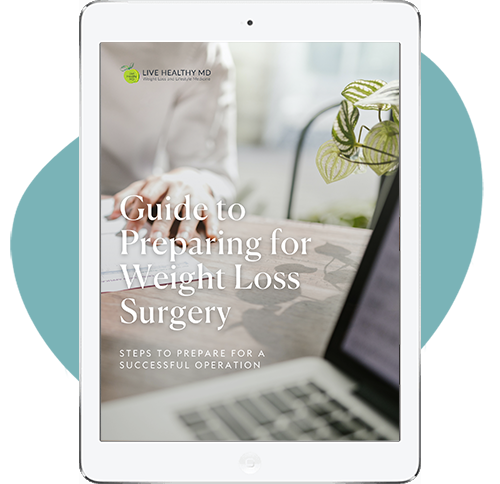
When it comes to weight loss surgery, deciding whether to have the gastric bypass or gastric sleeve procedures is a common question many patients have. These procedures are designed to help individuals struggling with obesity achieve significant weight loss and improve their overall health.
The gastric bypass and the gastric sleeve are excellent options for patients with a body mass index between the mid-30s and upper-40s. The gastric sleeve is traditionally recommended for patients with a BMI between 35 and 45, and the gastric bypass is recommended for patients with a BMI between 40 and 50.
The gastric bypass or the gastric sleeve both will help you lose weight, but there are some differences that must be noted, including the method in which they are performed and how they assist with weight loss.
Gastric Bypass
Gastric bypass surgery involves creating a small pouch at the top of the stomach and rerouting the small intestine to this pouch. This restricts the amount of food that can be consumed and reduces the absorption of calories and nutrients. As a result, patients experience rapid weight loss.
The gastric bypass, more formally known as the Roux-en-Y (RNY) gastric bypass, is a procedure in which we alter the intestines’ anatomy and therefore change the path of the food. The procedure works by creating a small stomach about the size of an egg, which will then directly connect to a piece of the small intestine, bypassing the main stomach (hence the name gastric bypass). During the gastric bypass procedure, the surgeon will also shorten the small intestines by about 30%.
As a result, patients will feel full faster, even when only eating about half the food they used to consume. And since weight gain results from the overconsumption of calories relative to the amount burned, the gastric bypass works to encourage weight loss by restricting the number of calories consumed.
Gastric Sleeve
On the other hand, the gastric sleeve procedure involves removing a large portion of the stomach, leaving behind a smaller sleeve-shaped stomach. This reduces the stomach's capacity to hold food, leading to decreased food intake and calorie absorption. Like gastric bypass, gastric sleeve surgery results in substantial weight loss.
The gastric sleeve, otherwise known as the Vertical Sleeve Gastrectomy (VSG), is a procedure in which the size and the shape of the stomach are changed.
The vertical sleeve gastrectomy involves placing a tube through the mouth into the stomach along the lesser curve. The surgeon will divide the fat attachments along the greater curve of the stomach. Then, using laparoscopic staplers, the surgeon will divide the stomach along the tube, beginning on the lower edge of the stomach (near the pylorus) to the upper edge (near the esophagus). The surgeon will remove about 70 to 80% of the stomach, leaving a banana-shaped pouch. Unlike the gastric bypass, the sleeve will not alter how food travels through your intestines.
Which Procedure is Better: Gastric Bypass or Gastric Sleeve?
Both procedures have their own advantages and considerations. Gastric bypass is known for its effectiveness in producing significant weight loss and improving obesity-related conditions such as type 2 diabetes. However, it is a more complex procedure and carries a higher risk of complications.
Gastric sleeve surgery, while not as effective in resolving type 2 diabetes, is a simpler procedure with fewer risks. It also preserves the natural function of the stomach's outlet valve, making it less likely to cause issues like dumping syndrome, a condition associated with gastric bypass.
Ultimately, the choice between gastric bypass or gastric sleeve depends on various factors, including the patient's medical history, body mass index (BMI), and personal preferences. Consulting with a qualified healthcare professional is essential to determine the most suitable option for each individual.
In conclusion, deciding whether to have a gastric bypass or gastric sleeve is a question that bariatric patients should consider. Both procedures offer significant weight loss benefits but understanding the key differences and consulting with medical experts can help individuals make informed decisions about which procedure best suits their needs and goals.

The Gastric Bypass vs. Gastric Sleeve
Expected Weight Loss
When comparing the gastric bypass vs. gastric sleeve, most patients want to know the expected weight loss. The gastric bypass has an average of 70 to 75% excess weight loss, whereas the gastric sleeve has an average of 60 to 65% excess weight loss.
It is essential to understand that when we as surgeons refer to “excess weight,” we are not talking about total weight. Excess weight loss is a percentage of your excess body weight. For example, if you are 200 pounds and your goal is 100 pounds, then you have 100 pounds of excess weight. The gastric bypass is more likely to help you lose a greater percentage of your excess weight than the gastric sleeve.
Health Impact
Aside from weight loss, we also want to look at the health benefits and risks of the gastric bypass vs. gastric sleeve. Due to the effectiveness of weight loss that the gastric bypass has, this procedure has better odds of curing diabetes and has some degree of protection from redeveloping diabetes in the future.
The gastric bypass is also advantageous for patients who experience gastroesophageal reflux disease (GERD). We do not recommend the Gastric Sleeve for patients with GERD because it could cause severe symptoms that are extremely difficult to control, aside from having a revision.
On the contrary, because the gastric bypass is more involved, there is a slightly higher risk of complications. Similarly, the intestinal bypass will result in the malabsorption of nutrients, leading to nutritional deficiencies if you do not take your bariatric vitamins.
The gastric sleeve is the least aggressive of staple bariatric procedures (bypass, sleeve, and duodenal switch), and it is easier to advance your diet after this procedure.
Conclusion
When you visit your bariatric surgeon for your initial visit, we will review your weight, medical history, and any health conditions that will help you decide the gastric bypass vs. gastric sleeve. We will also want to understand your weight loss expectations to help you choose the best weight loss procedure to fit your lifestyle. However, we encourage you to continue your research to understand what bariatric procedure is best for you.










